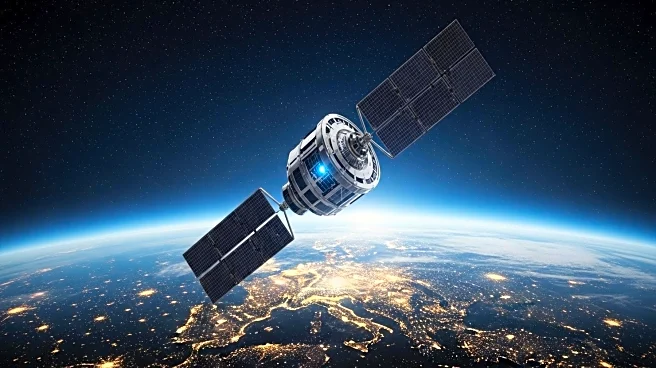What's Happening?
The Federal Communications Commission (FCC) has declared October as 'space month,' with Chair Brendan Carr outlining initiatives to enhance the U.S. regulatory environment for space industry innovators. Speaking at the opening of Apex Space's new satellite manufacturing facility in El Segundo, California, Carr announced plans to streamline satellite licensing processes. This includes establishing a 'licensing assembly line' to replace unique licensing requirements for each satellite, shifting from a 'default to no' to a 'default to yes' approach for license approvals. Additionally, the FCC aims to simplify applications for spacecraft operators and review outdated rules for Earth stations to optimize spectrum use. Carr emphasized these actions as significant steps towards supporting U.S. space dominance, framing the current era as 'Space Race 2.0' with China as a key competitor.
Why It's Important?
The FCC's initiatives are crucial for maintaining and enhancing the U.S.'s competitive edge in the global space industry. By reducing regulatory barriers, the FCC aims to foster innovation and growth within the U.S. commercial space sector, which is vital for economic development and national security. The streamlined processes could attract more investments and accelerate technological advancements, positioning the U.S. as a leader in the new space race. This is particularly significant as China continues to expand its space capabilities, potentially influencing global access to data and information. The U.S. government's proactive stance in cutting red tape is intended to ensure that American companies can compete effectively on the international stage.
What's Next?
The FCC is expected to vote on the proposed regulatory changes within the month. If approved, these measures could lead to a more dynamic and competitive U.S. space industry. Stakeholders, including space companies and policymakers, will likely monitor the outcomes closely, as these changes could set new precedents for regulatory practices in the space sector. The broader implications for international space policy and cooperation may also be significant, as the U.S. seeks to establish norms and standards in space operations.









